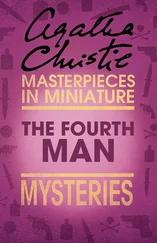Agatha Christie - Hickory Dickory Dock
Здесь есть возможность читать онлайн «Agatha Christie - Hickory Dickory Dock» — ознакомительный отрывок электронной книги совершенно бесплатно, а после прочтения отрывка купить полную версию. В некоторых случаях можно слушать аудио, скачать через торрент в формате fb2 и присутствует краткое содержание. Год выпуска: 2000, ISBN: 2000, Издательство: Berkle, Жанр: Классический детектив, на английском языке. Описание произведения, (предисловие) а так же отзывы посетителей доступны на портале библиотеки ЛибКат.
- Название:Hickory Dickory Dock
- Автор:
- Издательство:Berkle
- Жанр:
- Год:2000
- ISBN:ISBN-13: 978-0425175460
- Рейтинг книги:3 / 5. Голосов: 1
-
Избранное:Добавить в избранное
- Отзывы:
-
Ваша оценка:
- 60
- 1
- 2
- 3
- 4
- 5
Hickory Dickory Dock: краткое содержание, описание и аннотация
Предлагаем к чтению аннотацию, описание, краткое содержание или предисловие (зависит от того, что написал сам автор книги «Hickory Dickory Dock»). Если вы не нашли необходимую информацию о книге — напишите в комментариях, мы постараемся отыскать её.
Hickory Dickory Dock — читать онлайн ознакомительный отрывок
Ниже представлен текст книги, разбитый по страницам. Система сохранения места последней прочитанной страницы, позволяет с удобством читать онлайн бесплатно книгу «Hickory Dickory Dock», без необходимости каждый раз заново искать на чём Вы остановились. Поставьте закладку, и сможете в любой момент перейти на страницу, на которой закончили чтение.
Интервал:
Закладка:
"And you think that's what happened at Hickory Road?" Poirot nodded.
"That is my suspicion. Yes."
"But what put you on to it, Mr. Poirot-assuming you're right, that is?"
"A rucksack was cut to pieces," said Poirot. "Why? Since the reason is not plain, one has to imagine a reason. There is something queer about the rucksacks that come to Hickory Road. They are too cheap. There has been a series of peculiar happenings at Hickory Road, but the girl responsible for them swore that the destruction of the rucksack was not her doing. Since she has confessed to the other things why should she deny that unless she was speaking the truth? So there must be another reason for the destruction of the rucksack and to destroy a rucksack, I may say, is not an easy thing. It was hard work and someone must have been pretty desperate to undertake it. I got my clue when I found that roughly-(only roughly, alas, because people's memories after a period of some months are not too certain) but roughly-that that rucksack was destroyed at about the date when a police officer called to see the person in charge of the Hostel. The actual reason that the police officer called had to do with another matter, but I will put it to you like this: You are someone concerned in this smuggling racket. You go home to the house that evening and you are informed that the police have called and are at the moment upstairs with Mrs. Hubbard. Immediately you assume that the police are on to the smuggling racket, that they have come to make an investigation; and let us say that at the moment there is in the house a rucksack just brought back from abroad containingor which has recently contained-contraband. Now, if the police have a line on what has been going on, they will have come to Hickory Road for the express purpose of examining the rucksacks of the students. You dare not walk out of the house with the rucksack in question because, for all you know, somebody may have been left outside by the police to watch the house with just that object in view, and a rucksack is not an easy thing to conceal or disguise. The only thing you can think of is to rip up the rucksack, and cram the pieces away among the junk in the boiler-house. If there is dope-or gems on the premises, they can be concealed in bath salts as a temporary measure. But even an empty rucksack, if it had held dope, might yield traces of heroin or cocaine on closer examination or analysis. So the rucksack must be destroyed. You agree that that is possible?"
"It's an idea, as I said before," said Superintendent Wilding.
"It also seems possible that a small incident not hitherto regarded as important may be connected with the rucksack. According to the Italian servant, Geronimo, on the day, or one of the days, when the police called the light in the hall had gone. He went to look for a bulb to replace it; found the spare bulbs, too, were missing. He was quite sure that a day or two previously there had been spare bulbs in the drawer. It seems to me a possibility-this is far-fetched and I would not say that I am sure of it, you understand, it is a mere possibility-that there was someone with a guilty conscience who had been mixed up with a smuggling racket before and who feared that his face might be known to the police if they saw him in a bright light. So he quietly removed the bulb from the hall light and took away the new ones so that it should not be replaced. As a result the hall was illuminated by a candle only. This, as I say, is merely a supposition."
"It's an ingenious idea," said Wilding.
"It's possible, sir," said Sergeant Bell eagerly. "The more I think of it the more possible I think it is."
"But if so," went on Wilding, "there's more to it than just Hickory Road?" Poirot nodded.
"Oh yes. The organisation must cover a wide range of students' clubs and so on."
"You have to find a connecting link between them," said Wilding.
Inspector Sharpe spoke for the first time.
"There is such a link, sir," he said, "or there was. A woman who ran several student clubs and organisations. A woman who was right on the spot at Hickory Road. Mrs. Nicoletis." Wilding flicked a quick glance at Poirot.
"Yes," said Poirot. "Mrs. Nicoletis fits the bill. She had a financial interest in all these places though she didn't run them herself. Her method was to get someone of unimpeachable integrity and antecedents to run the place. My friend Mrs. Hubbard is such a person. The financial backing was supplied by Mrs. Nicoletis but there again I suspect her of being only a figurehead."
"Hm," said Wilding. "I think it would be interesting to know a little more about Mrs. Nicoletis." Sharpe nodded.
"We're investigating her," he said.
"Her background and where she came from. It has to be done carefully. We don't want to alarm our birds too soon. We're looking into her financial background, too. My word, that woman was a tartar if there ever was one." He described his experiences with Mrs. Nicoletis when confronted with a search warrant.
"Brandy bottles, eh?" said Wilding. "So she drank? Well, that ought to make it easier. What's haffppened to her? Hooked it?"
"No, sir. She's dead."
"Dead?" Wilding raised his eyebrows. "Monkey business, do you mean?"
"We think so-yes. We'll know for certain after the autopsy. I think myself she'd begun to crack. Maybe she didn't bargain for murder."
"You're talking about the Celia Austin case. Did the girl know something?"
"She knew something," said Poirot, "but if I may so put it, I do not think she knew what it was she knew!"
"You mean she knew something but didn't appreciate the implications of it?"
"Yes. Just that. She was not a clever girl. She would be quite likely to fail to grasp an inference. But having seen something, or heard something, she may have mentioned the fact quite unsuspiciously."
"You've no idea what she saw or heard, Mr. Poirot?"
"I make guesses," said Poirot. "I cannot do more. There has been mention of a passport. Did someone in the house have a false passport allowing them to go to and fro to the Continent under another name?
Would the revelation of that fact be a serious danger to that person? Did she see the rucksack being tampered with or did she, perhaps, one day see someone removing the false bottom from the rucksack without realising what it was that that person was doing?
Did she perhaps see the person who removed the light bulbs?
And mention the fact to him or her, not realising that it was of any importance? Ah, mon Dieu!" said Hercule Poirot with irritation. "Guesses! guesses! guesses! One must know more. Always one must know more!"
"Well," said Sharpe, "we can make a start on Mrs. Nicoletis" antecedents. Something may come, up."
"She was put out of the way because they thought she might talk? Would she have talked?"
"She'd been drinking secretly for some time. and that means her nerves were shot to pieces," said Sharpe. "She might have broken down and spilled the whole thing. Turned Queen's Evidence."
"She didn't really run the racket, I suppose?" Poirot shook his head.
"I should not think so, no. She was out in the open, you see. She knew what was going on, of course, but I should not say she was the brains behind it. No."
"Any idea who is the brains behind it?"
"I could make a guess-I might be wrong. Yes-I might be wrong!"
"HICKORY, DICKORY, DOCK," said Nigel, "the mouse ran up the clock. The police said "Boo," I wonder who will eventually stand in the Dock?" He added, "To tell or not to tell? That is the question!" He poured himself out a fresh cup of coffee and brought it back to the breakfast table.
"Tell what?" asked Len Bateson.
"Anything one knows," said Nigel, with an airy wave of the hand.
Jean Tomlinson said disapprovingly, "But of course! If we have any information that may be of use, of course we must tell the police. That would be only right."
Читать дальшеИнтервал:
Закладка:
Похожие книги на «Hickory Dickory Dock»
Представляем Вашему вниманию похожие книги на «Hickory Dickory Dock» списком для выбора. Мы отобрали схожую по названию и смыслу литературу в надежде предоставить читателям больше вариантов отыскать новые, интересные, ещё непрочитанные произведения.
Обсуждение, отзывы о книге «Hickory Dickory Dock» и просто собственные мнения читателей. Оставьте ваши комментарии, напишите, что Вы думаете о произведении, его смысле или главных героях. Укажите что конкретно понравилось, а что нет, и почему Вы так считаете.












